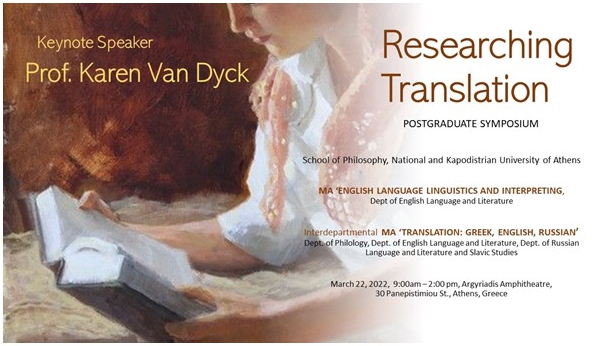Description
Gender representation in translating Jeanette Winterson’s 'The Daylight Gate'
The aim of the research is to investigate how translation shapes the identity of a historical figure (the 17th c. witch) for a Greek audience. Jeanette Winterson’s novella, The Daylight Gate, deals with the 17th century Lancaster witch trials and the misogyny inherent in patriarchal society. Hutcheon’s (2010) theory on historiographic metafiction explains how Winterson draws both on history and fiction, thus creating a self-reflexive novella. The study uses pragmatic theories (Grice 1975, Sperber and Wilson 2006, Culpeper 1996) in order to flesh out misogynistic connotations that underlie what is clearly stated. The author of the presentation produced a Greek translation of the novella to try her hand in handling misogynistic inferences and the offensive language of the source text. A questionnaire confirmed the hypothesis that a Greek audience would appreciate foregrounding inferences and enhancing impoliteness in rendering the novella into Greek. Findings are attributed to changing attitudes of Greek society regarding women, through raised social awareness on female positions. These attitudes are possibly harbored by the rise of feminism and the upsurge of femicides in the country, particularly after the emergence of COVID-19. The study highlights the importance of metanarratives in redeeming historical figures, as well as the significance of pragmatic inferencing and discourse analysis in translation practice. Incorporating literary texts in translation curricula can be beneficial for the study of gender identity construction through discourse. Keywords: 17th c. witch hunts, misogyny, pragmatic inferen¬cing, gender, feminism, literature.

